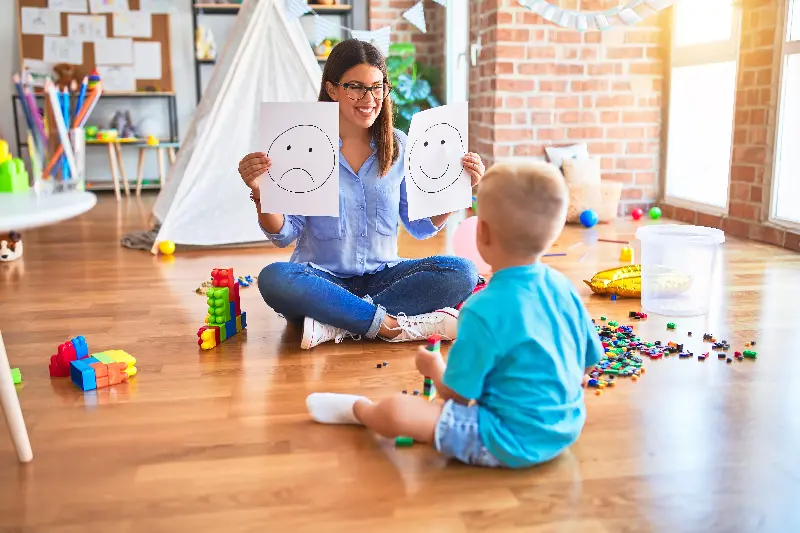Every parent, at some point, faces moments of confusion, frustration, or pure wonder about what is going on in their child’s mind. Whether you’re wrangling a strong-willed toddler, supporting a moody adolescent, or guiding a curious preteen, there’s a universal desire: finding peace at home and raising happy, resilient kids. What if the secret ingredient to family harmony is truly understanding your child? Beyond routines and rules, the daily magic happens when parents tune in to their children’s internal worlds, connecting with their emotions, thoughts, and unique perspectives.

Why Understanding Your Child Matters
At its core, parenting is a relationship. Like any relationship, it thrives on empathy and trust. When children feel seen and heard, they not only behave better—they develop stronger emotional intelligence and self-worth. Modern child psychology shows that the parent-child bond is shaped most powerfully when mothers and fathers actively work to “see the world through their child’s eyes.”
Consider this: Children’s brains are wired differently than adult brains. What seems logical to us as parents might be baffling or overwhelming for a 5-year-old. Understanding a child’s stage of development, temperament, and daily challenges allows parents to tailor their responses with compassion, rather than conflict. This doesn’t mean giving in to every whim; instead, it’s about curiosity and collaboration.
Research from the Center on the Developing Child at Harvard University highlights that children who sense consistent emotional support at home are more likely to navigate stress well, build positive relationships, and become problem solvers. Simply put, understanding your child is a powerful buffer against the emotional storms that are a normal part of growing up.
Decoding Behavior: The Language Of Emotion
One fascinating fact: Most children, especially young ones, express their emotions through behavior rather than words. When your preschooler throws a tantrum at the grocery store or your teenager slams the door after school, it’s often the tip of the iceberg. Underneath, there might be hunger, fatigue, anxiety, or sadness at play. The key for parents is deciphering “what’s really going on” rather than responding only to the surface behavior.
This doesn’t require a psychology degree—it starts with paying attention. Try asking gentle, open-ended questions. “You seem upset after school. Want to talk?” Or reflect what you see: “It looks like you’re frustrated because your project didn’t go as planned.” Such statements let your child know you’re trying to understand, not judge.
Over time, children who feel understood become better at recognizing and expressing their own emotions. The skill of “naming feelings” has been linked to lower aggression, fewer conflicts, and increased cooperation—all essentials for a peaceful family life.

The Power Of Positive Parenting Strategies
Unlocking family peace isn’t about eliminating every squabble or meltdown. It’s about building an environment where children feel safe to express themselves, make mistakes, and learn from them. Science-backed positive parenting techniques highlight a few essential practices:
- Practice active listening. When your child is upset, try to give them your full attention. Put away devices, get at their level, and show interest with your body language.
- Validate their feelings—even if you don’t agree with their actions. “I see you’re really mad. It’s okay to feel angry. Let’s talk about a way to handle it next time.”
- Set consistent boundaries with empathy. Structure and clear expectations help kids feel secure, especially when paired with warmth and understanding.
- Offer choices where possible. "Would you like to do your homework before or after dinner?" This gives kids a sense of control and partnership.
- Model calm problem-solving. Children watch how you handle stress or disappointment and often mimic your reactions.
These strategies, drawn from decades of research, don’t just reduce conflict in the short-term—they strengthen the parent-child connection and lay a foundation for lifelong emotional well-being.
Real-Life Moments That Matter
Interestingly, some of the deepest understanding develops during ordinary, unscripted moments. Bedtime stories, car rides, kitchen conversations, and even shared chores can open windows into your child’s inner life. Invite dialogue by asking about their favorite part of the day, their worries, or what they’re proud of accomplishing. Celebrate their uniqueness—whether that’s a quirky sense of humor or a budding passion for science.
Another powerful tool is sharing your own feelings (appropriately). When parents model vulnerability—“I had a tough day at work but talking to you helped”—they teach children that emotions are normal and manageable.
When Challenges Arise: Seeking Help Is A Strength
Every family will hit rough patches. Sometimes, despite our best efforts, we can’t “read” our child’s signals, or we notice ongoing signs of distress—like changes in eating, sleeping, or a sudden drop in academic performance. Don’t hesitate to seek support from a counselor, pediatrician, or trusted parenting resources. Asking for help models courage and resilience for your child and creates a stronger, more peaceful family system.
Unlocking family peace starts with a simple but powerful decision: choosing, every day, to better understand your child. By embracing curiosity, empathy, and patience, parents can transform daily challenges into moments of connection, resilience, and joy. In a world filled with parenting advice, this superpower might just be the one that makes all the difference.
